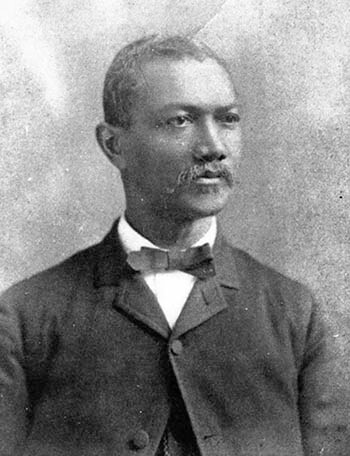Remembering Dr. Alexander Augusta, the U.S. Army’s First Black Doctor
 A photo of Maj. (Dr.) Alexander Augusta among the Seventh Regiment of U.S. Colored Troops where he served as regimental surgeon during the Civil War. (Photo: National Park Service)
A photo of Maj. (Dr.) Alexander Augusta among the Seventh Regiment of U.S. Colored Troops where he served as regimental surgeon during the Civil War. (Photo: National Park Service)
Alexander Thomas Augusta was born in Norfolk, Virginia, in 1825. His parents were free African Americans. Growing up in Baltimore, he worked as a barber while he pursued his dream of attending medical school.
After earning his medical degree in Canada, Dr. Augusta offered his services to the U.S. military. In a letter to President Abraham Lincoln, he offered his services as a surgeon.
But Augusta was initially rejected due to his race. Nevertheless, he traveled to Washington, D.C., to plead his case and was finally accepted.
In April 1863, he passed the Army's medical examination and the Army commissioned him at the rank of major. He became a surgeon for African American troops, making him the Army's first African American doctor.
At the time, Augusta was the highest ranking African American officer. He served as the Regimental Surgeon of the Seventh U.S. Colored Troops. He was awarded a promotion to lieutenant colonel in March 1865.
 Dr. Alexander Augusta was the first African American to be an Army doctor. (Photo: National Park Service)
Dr. Alexander Augusta was the first African American to be an Army doctor. (Photo: National Park Service)
During his extraordinary career, Augusta became America's first black hospital administrator, and the man responsible for the desegregation of train cars in Washington D.C.
In 1865, after the Civil War had ended, President Lincoln invited him to the White House. African Americans visiting the White House was very rare and the event was widely reported across the country.
Later in life, Augusta served as the head of the Lincoln Hospital in Savannah, Georgia. Later he was the attending surgeon to the Smallpox Hospital in Washington in 1870. And eventually he went on to teach anatomy at Howard University. He was the first African American faculty appointed to any medical college in the United States.
At the age of 65, Augusta died in Washington, D.C. He became the first black Army officer to be buried in the Arlington National Cemetery. Army Lt. Col. (Dr.) Alexander T. Augusta's tomb can be found in Section 1, at Grave 124A.